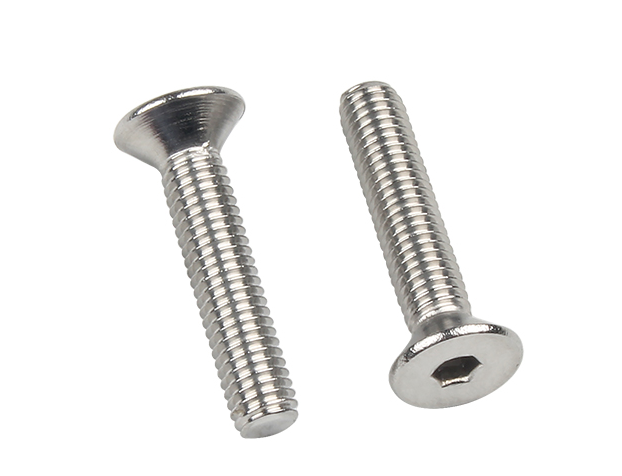

Different Varieties of Steel Washers and Their Applications
Dec . 05, 2024 05:25 Back to list
Different Varieties of Steel Washers and Their Applications
Types of Steel Washers
Steel washers are essential components in various mechanical applications, serving as spacers, load distributors, and protectors of surfaces. Their unique properties make them suitable for a wide range of uses, particularly in construction, automotive, and manufacturing industries. This article explores the different types of steel washers, highlighting their specifications, applications, and benefits.
1. Flat Washers
Flat washers are the most common type of washers used in various fastening applications. They are typically disc-shaped and have a hole in the center to accommodate a bolt or screw. Flat washers help distribute the load of a fastener over a larger surface area, which minimizes the risk of damaging the material being fastened. These washers are made from various grades of steel, including low carbon steel, for general applications, and stainless steel for environments prone to corrosion.
Applications Flat washers are widely used in construction, automotive parts, and machinery to ensure even weight distribution and prevent loosening of fasteners over time.
2. Lock Washers
Lock washers are designed to prevent loosening of fasteners from vibration and torque. They can come in various shapes, with the most common being external tooth and internal tooth lock washers. External tooth lock washers have teeth that grip the surface of the material being fastened, while internal tooth lock washers have teeth that grip the bolt or screw. These types of washers create friction, which helps maintain tightness even under dynamic loads.
Applications Lock washers are essential in applications where vibrations are prevalent, such as in automotive engines and heavy machinery.
Spring washers, also known as wave washers, are used to apply a preload to a bolt or screw. Their unique design allows them to compress and expand, thereby absorbing shock and reducing friction. The spring action also ensures that the fastener remains tight under changing loads.
Applications Spring washers are often used in applications where shock absorption is critical, such as in suspension systems of vehicles and in machinery that experiences frequent operational changes.
types of steel washers

4. Fender Washers
Fender washers are larger in diameter than standard flat washers, providing a broader surface area for load distribution. They are designed to cover larger holes in materials and offer greater stability. These washers accommodate a significant amount of tension without tearing or damaging the surface.
Applications Fender washers are frequently utilized in applications involving sheet metal and plastic, such as in automotive fenders and panels, where larger bearing surfaces are required.
5. Insulated Washers
Insulated washers, usually made from a combination of steel and insulating materials, such as nylon or rubber, serve dual purposes. They not only provide load distribution but also offer electrical insulation. This prevents electrical currents from flowing through fasteners, which is crucial in applications where electrical conductivity can cause short circuits or electrical interference.
Applications Insulated washers are commonly used in electrical applications and in environments where electrical insulation is necessary, such as in electrical panels and other equipment.
6. Bonded Washers
Bonded washers are used when a watertight seal is required. They consist of a steel washer bonded to a rubber or other sealing material. This design allows for robust sealing capabilities while maintaining the strength of a metallic washer. Bonded washers are ideal for applications where moisture or contaminants need to be kept at bay.
Applications These washers are often seen in plumbing fixtures, as well as in automotive and industrial applications where sealing is a priority.
Conclusion
Understanding the various types of steel washers and their specific applications is vital for anyone involved in mechanical assembly or maintenance. Each type of washer serves a unique purpose, whether it is to provide stability, prevent loosening, absorb shock, or ensure a watertight seal. Choosing the right washer for a specific application can significantly enhance the integrity and longevity of assemblies. As industries evolve and the demand for quality and reliability increases, the role of these seemingly simple components will continue to be pivotal in engineering and manufacturing.
Latest news
-
Hot Dip Galvanized Bolts-About LongZe|High Strength, Corrosion Resistance
NewsJul.30,2025
-
High-Strength Hot Dip Galvanized Bolts - Hebei Longze | Corrosion Resistance, Customization
NewsJul.30,2025
-
Hot Dip Galvanized Bolts-Hebei Longze|Corrosion Resistance&High Strength
NewsJul.30,2025
-
High-Strength Hot-Dip Galvanized Bolts-Hebei Longze|Corrosion Resistance&High Strength
NewsJul.30,2025
-
Hot Dip Galvanized Bolts-Hebei Longze|Corrosion Resistance&High Strength
NewsJul.30,2025
-
Hot Dip Galvanized Bolts - Hebei Longze | Corrosion Resistance, High Strength
NewsJul.30,2025

